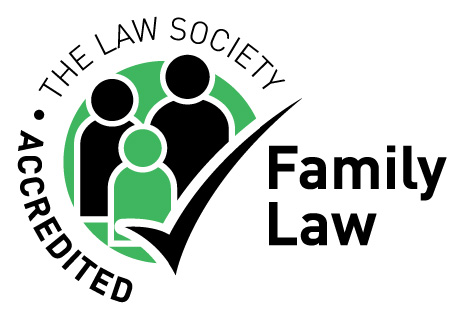Contract Solicitors in Enfield, North London and Hertfordshire
Everything a business does involves contracts. Whether the agreements between the owners, the customers, the staff, the suppliers, the landlord and other stakeholders, it is all about contracts.
Contracts come in numerous shapes and sizes for a multitude of situations and we can help make sure you have the right contracts for your business requirements.
A good contract is, quite simply, one that works.
Many of our clients are referred from other lawyers who do not have the specialist situational experience.
Typical contracts we prepare or review
We can prepare or review a very wide range of contracts including:
- Shareholder agreements and partnership agreements
- Joint venture agreements for example commercial collaborations or property SPVs
- Option agreements
- Non-disclosure confidentiality agreements, whether one way or two way
- Investment agreements
- Management agreements
- Business sale and purchase agreements
- Website compliance documentation
- Terms and conditions
- Consultancy agreements
- Agency and distributions agreements
- Licencing of intellectual property agreements
- Franchising agreements
- Supply of services agreements and framework agreements
- Website design and development agreements
- Employment contacts
- Property leases
Preparation of a new contract or a contract review
If you are looking for a new contract or a contract review, then for simple agreements we may be able to provide an estimate over the phone for the cost and time required to prepare or review. Alternatively we may suggest an initial retainer to scope out the requirements of the contact. The outcome of the scoping session is to ascertain the core commercial provisions of the contract and whereupon we can agree the fuller terms of our service and fees with you. A scoping session will usually cover the following matters:
The core nature of the contract
If a contract to provide a service, then what is the service? What is being provided? What is excluded? Are there any assumptions, reservations, qualifications and limitations to the service? Are there any ancillary services, if so, again apply the same questioning to each service. For businesses with a wide range of complex services, there may need to be separate schedules for each service and including various procedures of managing change, provision of information, deemed acceptance of services and more.
The value of the contract to you
If the contract is a one-off and high value commission agreement, the level of work and risk for us may be quite different than for something more routine and low value.
Who are the customers, businesses (b2b) or consumers (b2c)
Consumers are entitled to a range of additional protections over b2b. Sometimes a business will sell to both businesses and consumers, so a decision will be required whether to have one set of terms with one standard no matter who the customer is, or two sets of contracts.
How contracts concluded
For example, are they concluded automatically through an ecommerce platform or a traditional wet ink signature is required. Allied to how contracts are concluded is also the question of who in your organisation will have authority to entering into contracts. If appropriate we can provide guidance and training in relation to good contract creation practices.
Frequency of contract being entered into
It can make a significant difference if you will be using the contracts thousands of times, as opposed to a one off.
How long should the contact be?
You are not going to want your contracts to be as long and complicated as possible. Ideally the contract should be the right length that is appropriate to provide the right level of protection and present in a proper intelligible manner for the situation. Commonly contracts form two or more separate documents. For example a short and clear covering letter setting out the high level commercial provisions of price and payments terms, together with a detailed set of small print terms and conditions incorporated by reference. We will discuss with you how you would like your contracts to look and feel.
What if one party breaches the contract or is unable to perform?
A fundamental requirement of a contract ought to be a right to enforce an agreed obligation. Sometimes other remedies may be more suitable and proportionate. We can discuss with you what the rights and obligations would be in the event of a party being in breach.
What if you are in breach?
Problems can and do happen and a contract should provide the mechanisms to fairly limit and apportion liability if you are at fault. Some liability as matter of public policy can never be limited or excluded, such as liability for death or personal injury caused by negligence. In general terms, other types of liability under a contract can be limited, but subject to requirements of reasonableness (and sometimes fairness). We can guide what may be reasonable limitations in a contract. Specialist advice is generally recommended in relation to any limitation of liability provision of a contract.
Regulatory and statutory controls
In the modern world virtually all businesses are regulated in some manner or another. We can guide on general requirements to be included in a contract to ensure the contract is compliant from a regulatory perspective. This may include data protection and GDPR, mandatory information disclosures about who you are and how a consumer customer may cancel a contract.
Ownership of intellectual property
There may be a variety of different intellectual rights created or licenced as part of a contract. The contract creation or review process should consider relevant ownership and licencing and provide as necessary.
Boilerplate
The boiler plate clauses refer to “the small print” that is likely read the very least, if at all. For example provisions on confidentiality, choice of law, how to send notices, what happens if a party does not enforce a right, what happens to the whole contract if one clause is held ineffective, what happens if there is force majeure and so on. The boilerplates serve an important but secondary function.
Contact our Commercial Lawyers in Enfield, Finchley, North London and Hertfordshire today
If you buying a business or buying a company or selling a business or selling a company, we are here to help. Call us today or complete our online contact form and one of our team will be in touch to discuss your matter further.




















